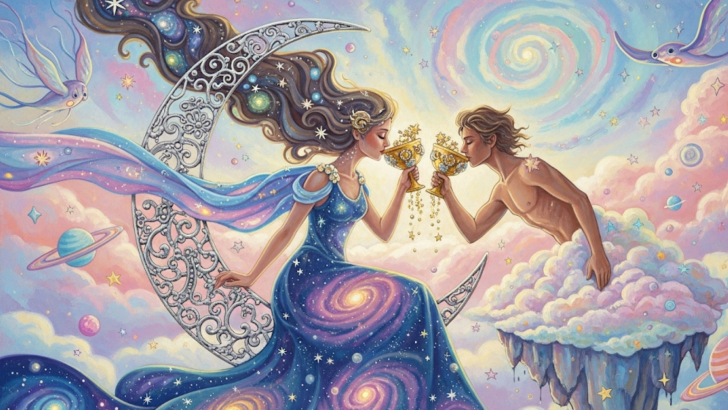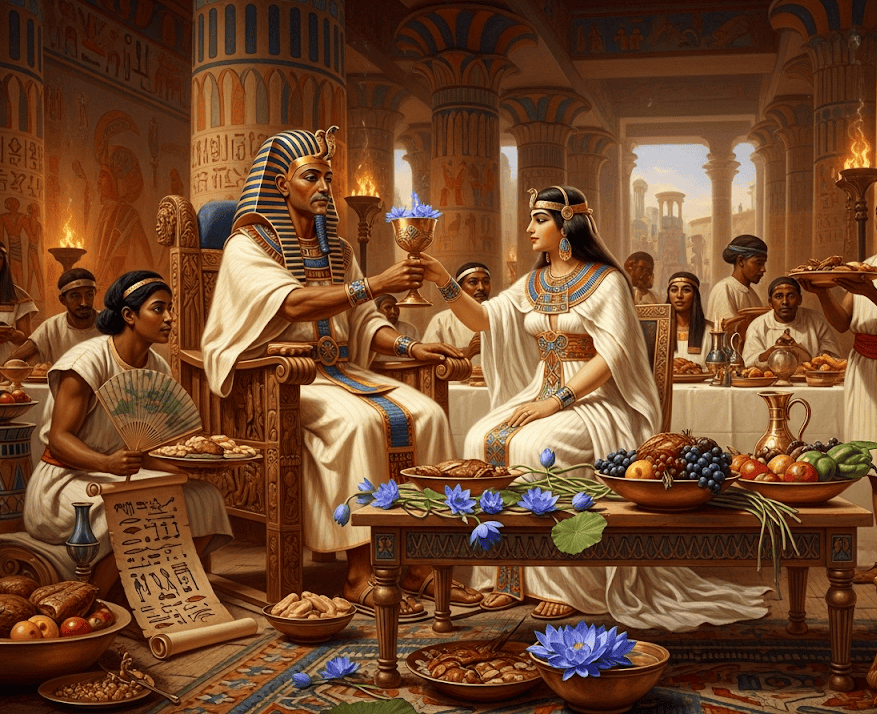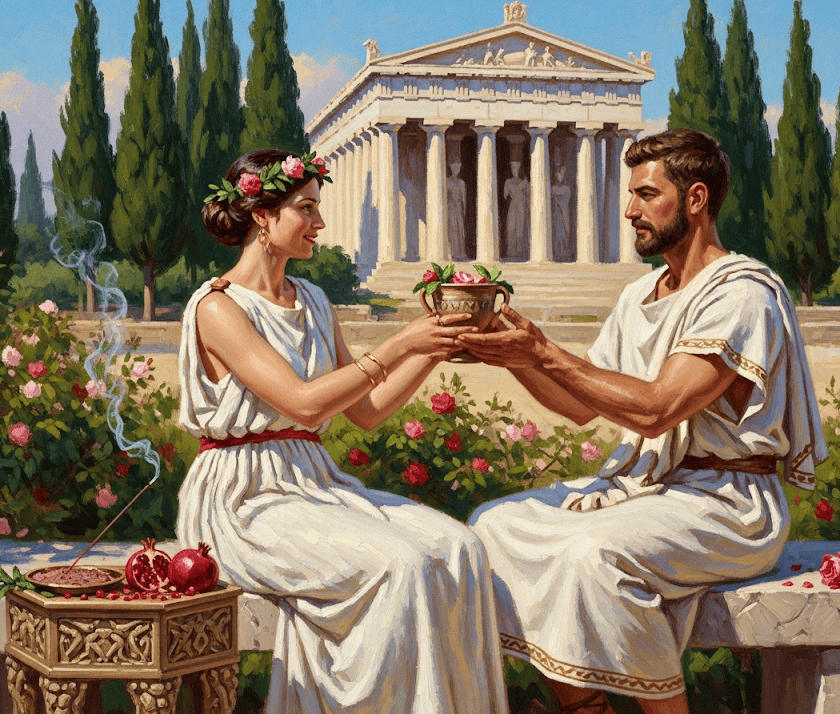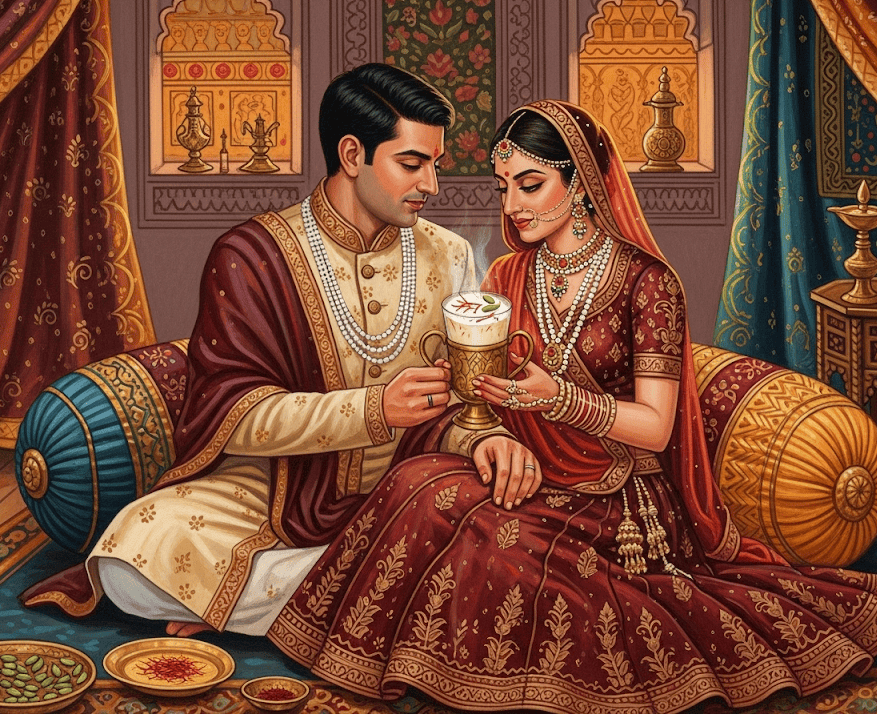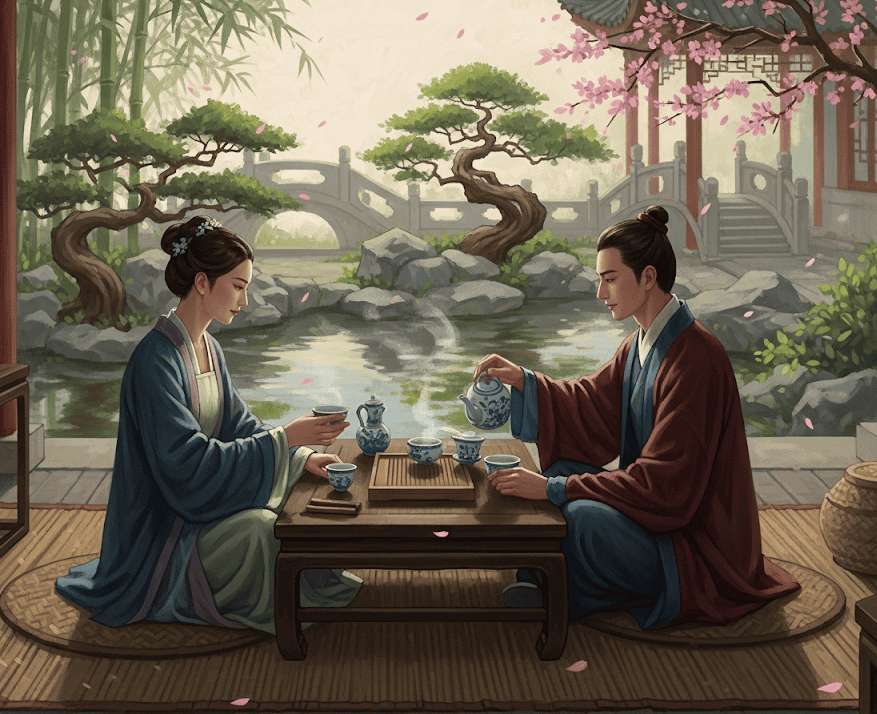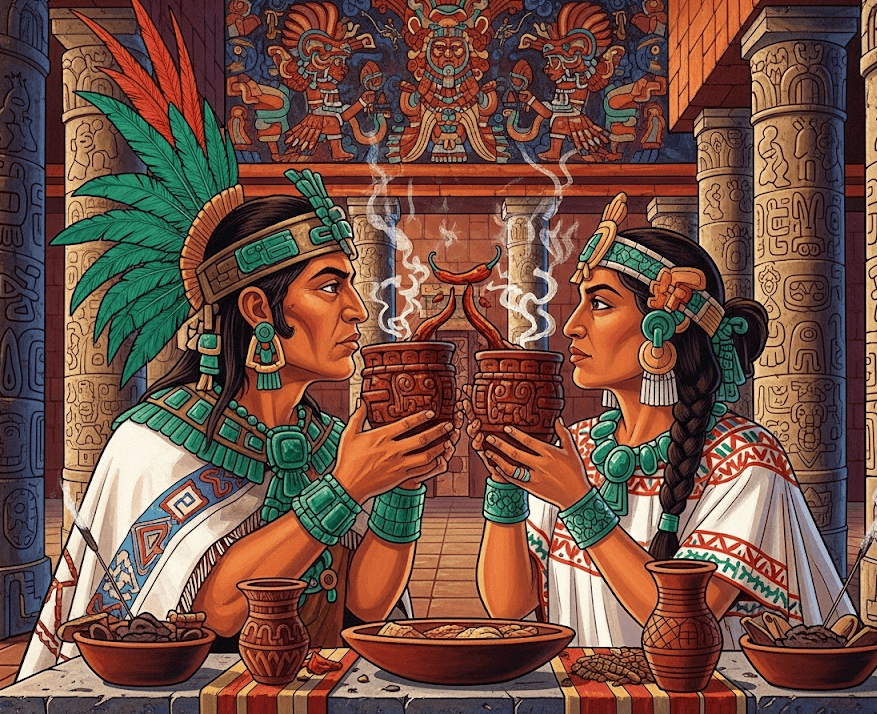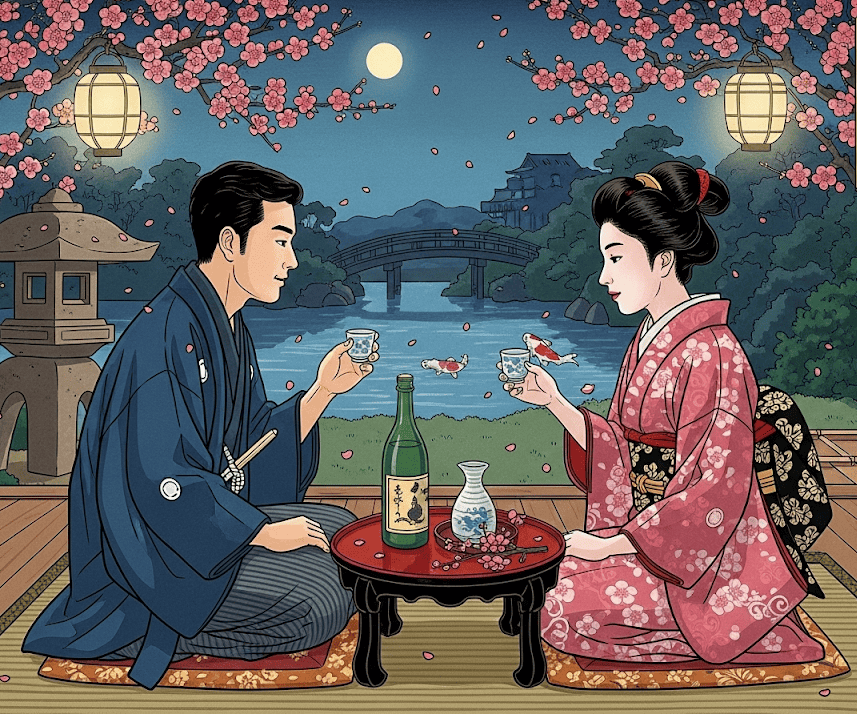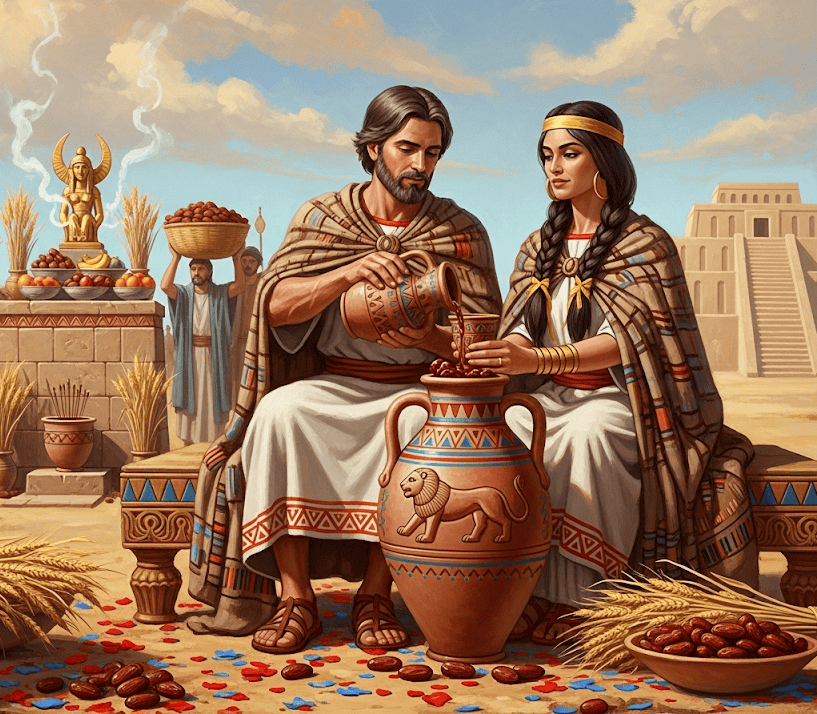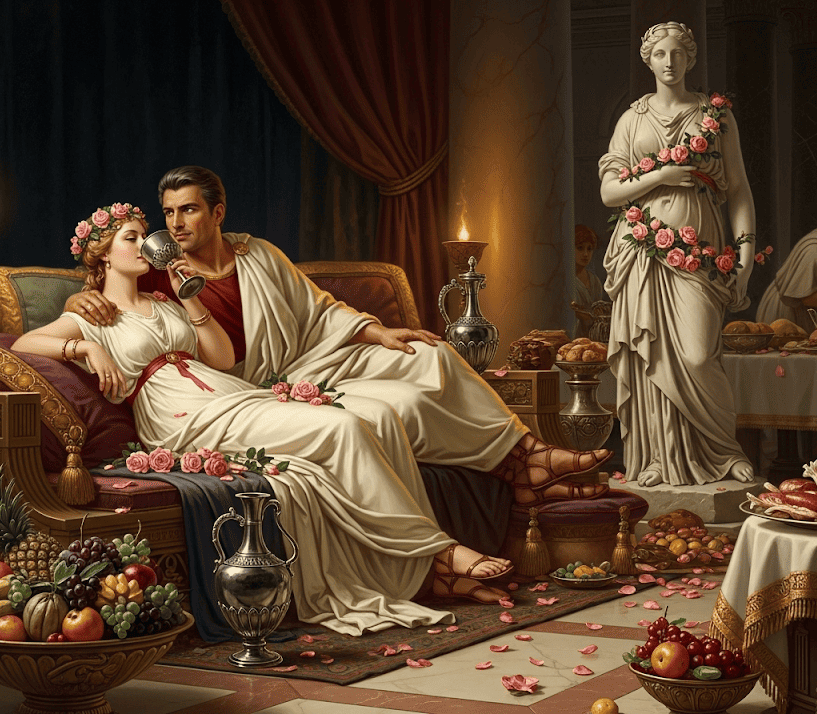For as long as people have fallen in love, they’ve also searched for ways to spark it, strengthen it, or win it back.
Across cultures, herbs, spices, and potions were mixed into elixirs believed to ignite passion or inspire devotion.
Some of these recipes sound surprisingly delicious, while others feel more like bold experiments in magic.
Each one gives us a glimpse into how ancient people understood love as something that could be stirred, sipped, and savored.
1. Mead, the Honey Wine of the Celts
In Celtic tradition, honey was seen as a gift from the gods, packed with sweetness and life-giving power. When fermented into mead, it became more than a drink – it turned into a love potion.
Newlyweds drank it during their “honeymoon,” a word that actually comes from this very practice.
The belief was that honey wine could bring fertility, passion, and harmony between partners.
Mead’s warm, golden flavor carried the symbolism of sweetness in love, and sharing it created a bond that felt magical, as if love itself had been brewed into the cup.
2. The Egyptian Blue Lotus Infusion
The blue lotus flower was sacred in ancient Egypt, connected to rebirth, pleasure, and sensuality.
When steeped into wine, the petals created a mildly intoxicating drink thought to spark intimacy and passion.
Pharaohs and nobles used it during feasts where romance and luxury mingled freely. The lotus was also a symbol of the rising sun, unfolding each day in beauty, much like love blooming after a long night.
Drinking blue lotus wine was not just about desire, it was about opening the heart and connecting body and spirit in a divine experience.
3. Greek Kykeon with Love-Infused Herbs
Kykeon was a ceremonial drink in ancient Greece, usually made from barley, herbs, and sometimes honey or wine.
While it is most famous in religious rites, certain versions were crafted with herbs believed to attract affection.
Adding mint, roses, or myrtle turned it into a romantic elixir, often shared during festivals honoring Aphrodite.
The Greeks knew that smell and taste could awaken emotions, so these herbal blends carried the energy of both pleasure and devotion.
Couples who shared kykeon with such additions believed it deepened their bond and invited the goddess of love herself to bless them.
4. Indian Spiced Milk with Saffron
In India, saffron has long been seen as a spice of attraction and vitality. Mixed into warm milk with honey, cardamom, and nuts, it created an elixir often linked to romance and fertility.
Newlyweds sometimes shared saffron-infused drinks to strengthen their connection and encourage harmony in the marriage.
Saffron’s golden hue symbolized both wealth and passion, making it the perfect ingredient for love rituals.
Beyond its taste, saffron was considered warming for the body and spirit, helping to create intimacy that lasted beyond the first night.
5. Chinese Tea Blends for Harmony
In Chinese traditions, tea itself was a symbol of balance, peace, and connection. Certain blends with jasmine, rose, or osmanthus were used as love elixirs, thought to calm the spirit while awakening romance.
Couples often shared tea ceremonies as a way to honor their bond, turning the simple act of drinking into a ritual of harmony.
The fragrance of jasmine or rose in the steam carried more than a pleasant scent – it carried wishes for devotion and tenderness.
Love was not always about fiery passion in these traditions; sometimes, it was about building something calm and enduring, one cup at a time.
6. Norse Honey and Apple Brew
In Norse mythology, apples were symbols of youth, beauty, and love, while honey was linked to vitality and sweetness.
Combined into brews or ciders, they became elixirs that celebrated romance and fertility.
Apples were sacred to the goddess Iðunn, who kept them for the gods to stay young, and their presence in love potions tied romance to the promise of renewal.
Drinking honey-apple brews was believed to bring not only pleasure but also the strength to maintain devotion through challenges.
For the Norse, love was as much about loyalty and endurance as it was about passion.
7. Aztec Chocolate Drinks with Chili
The Aztecs cherished cacao as a sacred gift, calling it the “food of the gods.” When mixed with chili, honey, and spices, it became an invigorating drink believed to awaken both body and heart.
Montezuma was said to drink cups of this chocolate elixir before visiting his wives, trusting in its powers to heighten passion.
The heat of chili symbolized fire and desire, while cacao represented richness and joy. Sharing this drink was both sensual and sacred, turning ordinary moments into experiences charged with intensity.
8. Japanese Plum Wine for Affection
Plum blossoms were admired in Japan as symbols of hope, beauty, and new beginnings. Plum wine, or umeshu, carried those same qualities and was often shared during festivals or intimate gatherings.
Its sweet, tangy flavor made it a favorite for romantic occasions, and it was believed to strengthen bonds between lovers.
The plum itself was hardy, blooming even in late winter, so it became a metaphor for love that endures difficulties.
Drinking plum wine was not just a toast—it was a poetic gesture, an invitation to weather life’s storms together.
9. Mesopotamian Date Wine of Devotion
In Mesopotamia, dates were associated with fertility, abundance, and sweetness. Date wine was often part of rituals dedicated to Inanna, the goddess of love and war.
Lovers believed drinking it together brought both pleasure and divine favor. The fruit’s natural richness made it a symbol of passion, and its connection to harvest cycles tied love to growth and prosperity.
Sharing date wine was a way of promising loyalty and abundance, binding couples not only in romance but in shared responsibility and care.
10. Roman Rose-Infused Wine
The Romans adored roses, and they became one of the strongest symbols of love in their culture. Rose petals steeped in wine created a fragrant elixir served at feasts and private encounters alike.
It was believed to stir emotions, awaken passion, and honor Venus, the goddess of love. Drinking rose wine was about more than intoxication.
Roses symbolized secrecy and intimacy as well, reminding lovers that their bond was something precious to be cherished.

Sempre senti uma forte ligação com o Divino desde o meu nascimento. Como autora e mentora, a minha missão é ajudar os outros a encontrar o amor, a felicidade e a força interior nos momentos mais sombrios.

